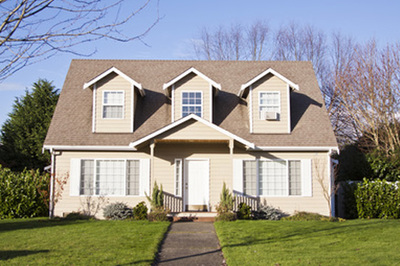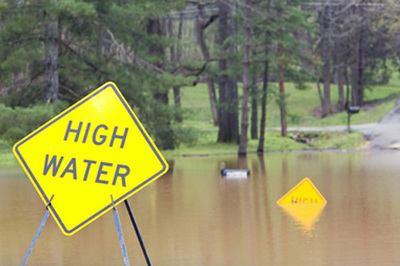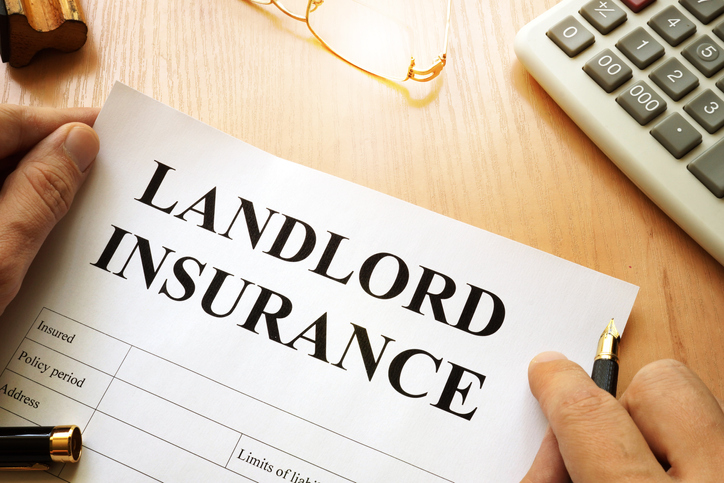Property

 What is Home Insurance?
What is Home Insurance?
Home insurance, also commonly called hazard insurance or homeowner's insurance (and often abbreviated in the US real estate industry as HO1), is a type of property insurance that covers a private residence.
It is an insurance policy that combines various personal insurance protections, which can include losses occurring to one's home, its contents, loss of use (additional living expenses), or loss of other personal possessions of the homeowner, as well as liability insurance for accidents that may happen at the home or at the hands of the homeowner within the policy territory.
Typical Home Insurance Coverages
Section I — Property Coverages
- Coverage A – Dwelling
Covers the value of the dwelling itself (not including the land). Typically, a coinsurance clause states that as long as the dwelling is insured to 80% of actual value, losses will be adjusted at replacement cost, up to the policy limits. This is in place to give a buffer against inflation. HO-4 (renter's insurance) typically has no Coverage A, although it has additional coverages for improvements.
- Coverage B – Other Structures
Covers other structure around the property that are not used for business, except as a private garage. Typically limited at 10% to 20% of the Coverage A, with additional amounts available by endorsement.
- Coverage C – Personal Property
Covers personal property, with limits for the theft and loss of particular classes of items (e.g., $200 for money, banknotes, bullion, coins, medals, etc.). Typically 50 to 70% of coverage A is required for contents, which means that consumers may pay for much more insurance than necessary. This has led to some calls for more choice.[14]
- Coverage D – Loss of Use/Additional Living Expenses
Covers expenses associated with additional living expenses (i.e. rental expenses) and fair rental value, if part of the residence was rented, however only the rental income for the actual rent of the space not services provided such as utilities.
- Additional Coverages
Covers a variety of expenses such as debris removal, reasonable repairs, damage to trees and shrubs for certain named perils (excluding the most common causes of damage, wind and ice), fire department changes, removal of property, credit card / identity theft charges, loss assessment, collapse, landlord's furnishing, and some building additions. These vary depending upon the form.
- Exclusions
In an open perils policy, specific exclusions will be stated in this section. These generally include earth movement, water damage, power failure, neglect, war, nuclear hazard, septic tank back-up expenses, intentional loss, and concurrent causation (for HO3).[15] The concurrent causation exclusion excludes losses where both a covered and an excluded loss occur. In addition, the exclusion for building ordinance can mean that increased expenses due to local ordinances may not be covered.[16] A 2013 survey of Americans found that 41% believed mold was covered, although it is typically not covered if the water damage occurs over a period of time, such as through a leaky pipe.[17]
- Floods
Flood damage is typically excluded under standard homeowners and renters insurance policies. Flood coverage, however, is available in the form of a separate policy both from the National Flood Insurance Program (NFIP) and from a few private insurers. [18]
Section II — Liability Coverages
- Coverage E – Personal Liability
Covers damages which the insured is legally liable for and provides a legal defense at the insurer's own expense. About a third of the losses for this coverage are from dog bites.[19]
To learn more about the right homeowners insurance for you.
 What is Flood Insurance?
What is Flood Insurance?
Flood insurance is the specific insurance coverage against property loss from flooding. To determine risk factors for specific properties, insurers will often refer to topographical maps that denote lowlands, floodplains and floodways that are susceptible to flooding.
More About Flood Insurance
Nationwide, only 20% of American homes at risk for floods are actually covered by flood insurance. Most private insurers do not insure against the peril of flood due to the prevalence of adverse selection, which is the purchase of insurance by persons most affected by the specific peril of flood.
Flooding is defined by the National Flood Insurance Program as a general and temporary condition of partial or complete inundation of two or more acres of normally dry land area or two or more properties (at least one of which is your property) from: Overflow of inland waters, unusual and rapid accumulation or runoff of surface waters from any source, and mudflows
This can be brought on by landslides, a hurricane, earthquakes, or other natural disasters that influence flooding, but while a homeowner may, for example, have earthquake coverage, that coverage may not cover floods as a result of earthquakes.
To learn more about the right amount of flood coverage for your home.
 What is Renters' Insurance?
What is Renters' Insurance?
Renters' insurance is an insurance policy which provides most of the benefits of homeowners' insurance. This includes liability insurance. The tenant's personal property is also covered against named perils such as fire, theft and vandalism. Renters' insurance does not include coverage for the dwelling, or structure, with the exception of small alterations that a tenant makes to the structure. The owner of the building is responsible for insuring it, but bears no responsibility for the tenant's belongings
How Much Renters' Insurance Do I Need?
The cost of renters insurance and the amount of personal property coverage you need depends on how much your property is worth.
To get a better understanding of your coverage needs, ask yourself the following questions:
- How much are my belongings worth?
- Could I afford to buy it all back again if it were destroyed in a fire or stolen?
- What would I do in the event of a liability lawsuit against me?
And one more thing. If you have ever asked yourself "Do I need renters insurance?" the answer is probably yes.
To learn more about the right renters insurance policy for you.
 What is Umbrella Insurance?
What is Umbrella Insurance?
Umbrella insurance refers to liability insurance that is in excess of specified other policies and also potentially primary insurance for losses not covered by the other policies.
When an insured is liable to someone, the insured's primary insurance policies pay up to their limits and any additional amount is paid by the umbrella policy up to the limit of the umbrella policy.
Common Situations Protected by Umbrella Insurance:
- Motor vehicle accidents with excessive physical damage, bodily injuries, or death.
- Slip and fall accidents on your property.
- Boating Accidents.
- Swimming Pool Accidents.
- Physical damage or bodily injury caused by your dog.
- Slander, libel, and defamation lawsuits.
- Judgments that exceed the limits of your auto or home policies.
To learn more about the right umbrella insurance for you.
What Is Commercial Property Insurance?
Commercial property insurance is used to cover any commercial property. Commercial property insurance protects commercial property from such perils as fire, theft, and natural disaster. A variety of businesses, including manufacturers, retailers, service-oriented businesses, and not-for-profit organizations carry commercial property insurance. It is generally bundled together with other forms of insurance, such as commercial general liability insurance.
KEY TAKEAWAYS
- Commercial property insurance is insurance used to cover property and equipment from the risk of disasters.
- Different types of properties and equipment are considered for commercial property insurance.
- Several factors, such as location and occupancy, are considered while determining the cost of commercial property insurance.
Understanding Commercial Property Insurance
Commercial property insurance can be a major expense for businesses that use equipment worth millions or billions of dollars, such as railroads and manufacturers. This insurance essentially provides the same kind of protection as property insurance for consumers. However, businesses can usually deduct the cost of commercial property insurance premiums as expenses. Commercial property insurance generally does not cover losses arising from tenants using the building.
When determining how much a company should pay for commercial property insurance, the value of a business' assets, including the building, is the primary factor. Before meeting with an agent to discuss coverage, a company should take an inventory of their physical assets located at their property. This information will help determine what exactly would be the replacement value and the level of coverage the business should get.
With an increase in the number of natural disasters, weather conditions in the area where the building is located have also become an important factor in determining the cost of commercial property insurance. Commercial insurance rates are generally higher for properties located in the vicinity or inside geographies with significant risk of weather-related catastrophes. For example, rates are higher for properties located near regions prone to wildfires in California.
Factors Considered in a Commercial Property Insurance
- Location: Buildings in cities or towns with excellent fire protection typically cost less to insure than buildings outside a city or in areas with limited fire protection.
- Construction: Buildings made of potentially combustible materials will have higher premiums, while those made of fire-resistant materials could earn a discount. Additions to an existing structure might affect a fire rating, so it's a good idea to talk to an agent or insurance company before remodeling. Internal structural elements can also change a fire rating. Using wood partitions, floors, and stairways in an otherwise fire-resistant building will likely nullify any rate reduction. Fire-resistant interior walls, floors, and doors can help maintain a good fire rating.
- Occupancy: A building's use also affects its fire rating. An office building will likely rate better than a restaurant or auto repair shop. In a building with multiple tenants, one hazardous occupant will negatively affect the fire rating of the entire building. If a business is in a building with a more hazardous tenant, premiums will be higher.
- Fire and theft protection: How far are the nearest fire hydrant and fire station? Does the business have a fire alarm and sprinkler system? How about a security system?
Property to Consider for Commercial Property Insurance
Some particular places on your property to consider insuring include:
- The building that houses your business, including if it is owned or rented
- All office equipment, including computers, phone systems, and furniture, whether they're owned or leased
- Accounting records and essential company documents
- Manufacturing or processing equipment
- Inventory kept in stock
- Fence and landscaping
- Signs and satellite dishes
To Learn More about Commercial Property Insurance
 Landlord Insurance
Landlord Insurance
Landlord insurance can be very similar to homeowners insurance in many ways. However, it expands the insurance coverage to protect the owners and the assets of the business. Your landlord insurance policy will cover property damage, liability, and loss of income.
What Does Landlord Insurance Cover?
There are three key coverages you need to make certain are included in your landlord insurance that is not typically covered under homeowners/home insurance:
Landlord Property Damage Protection: If your rental property is damaged or destroyed by a covered loss such as a fire or natural disaster, your insurance covers repairing and/or rebuilding it. It also typically covers property damage from theft, vandalism, or tenant damage.
Loss of Income Provision: A landlord policy will typically carry a loss of income provision. In the event of a fire or loss, the loss of income policy will reimburse you during the rebuilding phase. New landlords often forget this important component while needing the rental income to pay the mortgage. If you depend on the rental income, make sure your landlord policy covers this provision.
Landlord Liability Coverage: A landlord insurance policy will normally carry liability coverage as well. In the event a tenant or third party is injured on your property and sues you, this policy will protect you as the landlord. Your landlord insurance will cover legal costs, medical costs, and pay settlements if necessary.
To Learn More about Landlord Insurance
